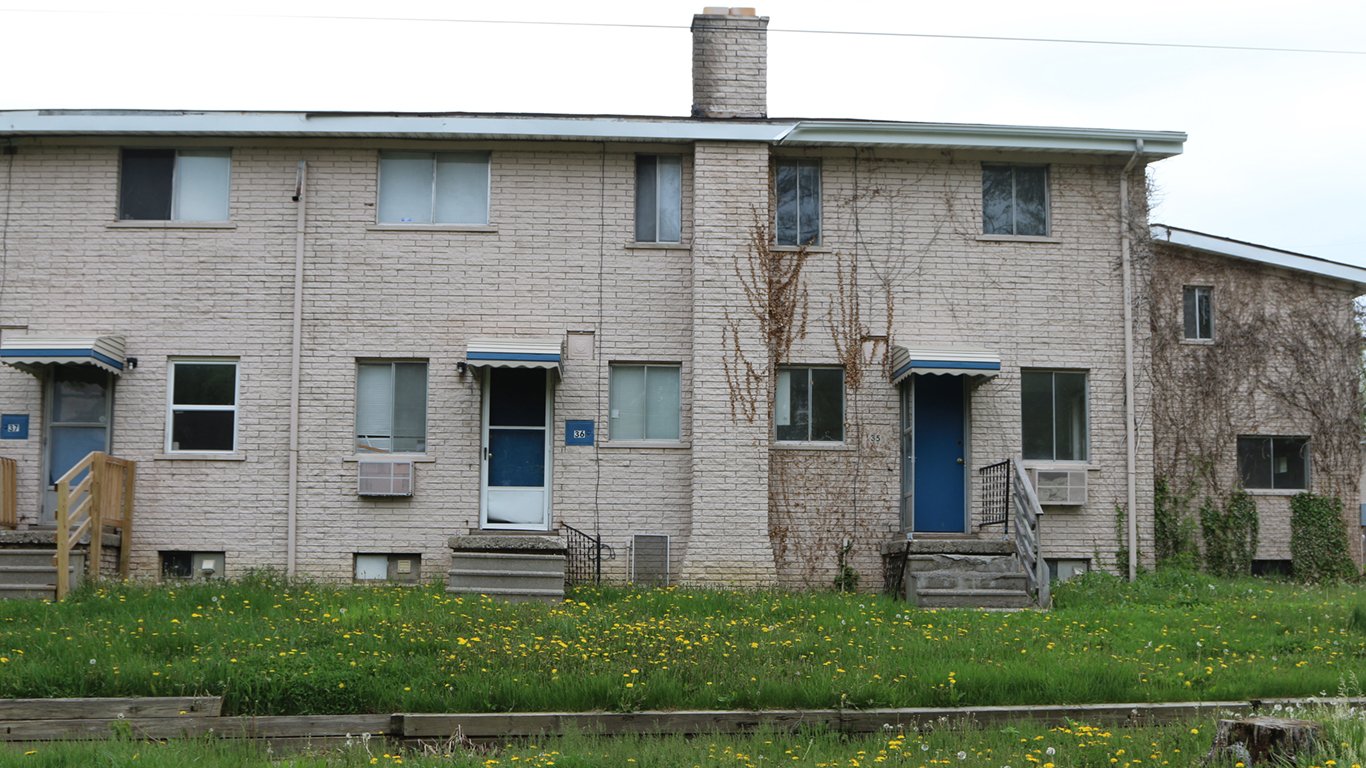

Add housing to the list of things low-paid workers cannot afford. While there has been a great deal of research about the problem, a new one crystallizes it. Minimum wages workers don’t have enough income to pay for one bedroom housing in many cases. Financially, two bedrooms are out of the question.
The Washington, D.C.-based advocacy group National Low Income Housing Coalition released a new study titled “Out of Reach 2018.” It covers research on the affordability of housing among minimum-wage workers. Among its core findings:
A full-time worker earning the federal minimum wage of $7.25 needs to work approximately 122 hours per week for all 52 weeks of the year, or about three full-time jobs, to afford a two-bedroom rental home at the national average fair market rent. The same worker needs to work 99 hours per week for all 52 weeks of the year, or approximately two and a half full-time jobs, to afford a one bedroom home at the national average fair market rent.
The housing crisis in the United States has largely been characterized as a problem for middle income families trying to buy their first homes, or upgrade to larger or more expensive ones. Thirty-year fixed-mortgage rates are bound to rise because of the Federal Reserve rate hikes. The Fed announced its second interest-rate increase this week and may announce more interest-rate hikes later this year. Current rates are about 4.6% and may move closer to 5% a year from now. But this concern is not as staggering as the one that revolves around low income housing.
The report continues:
In no state, metropolitan area, or county can a worker earning the federal minimum wage or prevailing state minimum wage afford a two-bedroom rental home at fair market rent by working a standard 40-hour week. In only 22 counties out of more than 3,000 counties nationwide can a full-time minimum wage worker afford a one-bedroom rental home at fair market rent. These 22 counties are all located in states with a minimum wage higher than $7.25.
Fair income is based on the 40th percentile of gross rents of standard units in any given market.
The bottom line is that low-wage workers probably cannot afford housing at all, unless in units with less than one bedroom. In and of itself, that means the minimum wage has taken one more hostage.
Essential Tips for Investing: Sponsored
A financial advisor can help you understand the advantages and disadvantages of investment properties. Finding a qualified financial advisor doesn’t have to be hard. SmartAsset’s free tool matches you with up to three financial advisors who serve your area, and you can interview your advisor matches at no cost to decide which one is right for you. If you’re ready to find an advisor who can help you achieve your financial goals, get started now.
Investing in real estate can diversify your portfolio. But expanding your horizons may add additional costs. If you’re an investor looking to minimize expenses, consider checking out online brokerages. They often offer low investment fees, helping you maximize your profit.
Thank you for reading! Have some feedback for us?
Contact the 24/7 Wall St. editorial team.



